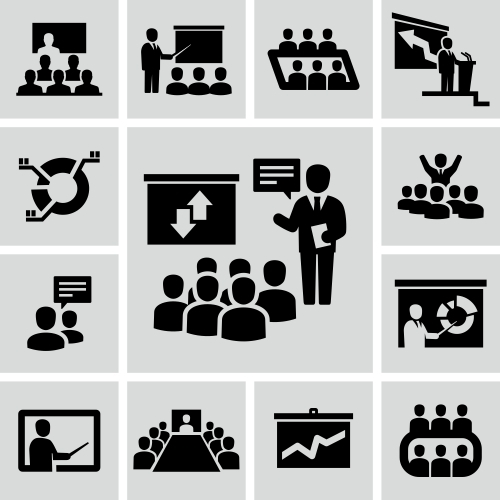In today’s Advisor, we hear from guest columnist, business professor Ed Hess, on how the “old smart” isn’t good enough for learning in the modern workplace. Instead, he provides seven 21st century learning skills every adult should learn.
 |
Maybe you graduated top of your college class. Maybe you have an MBA and complete the Saturday edition of the New York Times crossword in one sitting. Maybe you pride yourself on your ability to correct your colleagues’ grammar and e-mail typos. Unfortunately, says Professor Edward D. Hess, none of that will matter as we advance in an increasingly tech-driven world.
“You might consider yourself a great intellectual, but book smarts won’t be all that relevant as companies increase their use of robots and smart machines,” says Hess, a professor at the University of Virginia’s Darden Graduate School of Business and author of the new book Learn or Die: Using Science to Build a Leading-Edge Learning Organization (Columbia Business School Publishing, 2014, www.EDHLTD.com).
“What will matter is being an adaptive learner—someone who knows what you don’t know and how to learn it by asking the right questions, someone who can think critically and innovatively, someone who can really listen with an open mind and collaborate well with others. And more importantly, someone who is able to overcome the aspects of human nature that can make those accomplishments difficult to achieve.”
In order to stay competitive, it’s time to upgrade your skills and capabilities by embracing 21st century learning skills. The skill set Hess describes is so important because it will enable today’s professionals to stay relevant throughout their careers. No matter how rapidly knowledge advances (or how quickly a particular skill set becomes outdated), good adaptive learners have the best chance of winning.
Have you noticed that some of your employees have the potential to be effective leaders? Get them the training they need with BLR’s TrainingToday Leadership for Employees Library. Get the details here.
Here, Hess examines the first three of seven 21st century learning skills you need to be successful in a tech-driven world:
1. Get comfortable with “not knowing.” None of us are as smart as we think we are. And smart people know this! To learn, we need to know what we don’t know and not get defensive about it.
“In the technology-enabled world, how much you know will be irrelevant, because smart machines and the Internet will always know more than you,” says Hess. “What will be more important is knowing what you don’t know and knowing how to learn—in other words, the smartest people will be focused on continuously learning.
“And in order to learn well, you will need to accept that humans (yes, that includes you!) are not optimal learners,” he adds. “Cognitively we all are naturally fast, lazy, reflexive thinkers who seek to confirm what we know. It is important to learn how and when to make your thinking more intentional and deliberate. You must actively seek to develop your critical thinking and innovative thinking skills.”
2. Quiet your ego to embrace open-mindedness. Humans are naturally unwilling to listen to challenges to our thinking. But to become a more effective learner, you’ll have to train your brain to be emotionally nondefensive. You can no longer define yourself by what you know or by your ideas. Rather, Hess says, you should define yourself as a good learner who uses good thinking, listening, and collaborating processes.
“Today people must learn to stress-test their beliefs and preconceived notions, not constantly seek to confirm them,” he notes. “It takes courage to enter the world of the unknown and learn something new the first time. To make that process easier, people will have to learn to separate their ideas from their self-worth. Changing a previously held belief doesn’t mean you are a bad or stupid person. It simply means you’ve learned to adapt your thinking based on new information or facts that you’ve received.”
3. Be an “inner-directed” learner. Too often people are driven primarily by external rewards. Seeing learning as a way to obtain more money, respect, or love can result in your not accepting challenging learning opportunities because you want to avoid failures and making mistakes. In a business world where human contributions will come primarily through innovation—a process in which failure is a given—those motivated to avoid mistakes or failures will not be successful.
“In a tech-driven world, those who are able to be the most successful and fulfilled will be those who are driven by curiosity and a love of learning,” explains Hess. “You’ll need to see learning as its own reward. Develop a learning mind-set. Then, whenever you’re learning, you’re successful. The speed and quality of one’s learning is what will keep one relevant and competitive.”
Trying to get your employees trained to show leadership? It isn’t easy to fit it in—schedulewise or budgetwise—but now there’s BLR’s Leadership for Employees Library. Train all your people, at their convenience, 24/7, for one standard fee. Get More Information.
Edward D. Hess is a professor of business administration and Batten Executive-in-Residence at the University of Virginia’s Darden School of Business and the author of 11 books, including Learn or Die: Using Science to Build a Leading-Edge Learning Organization, by Columbia Business School Publishing (September 2014).
In tomorrow’s Advisor, we’ll look at the last four 21st century learning skills you need to be successful in a tech-driven world.
